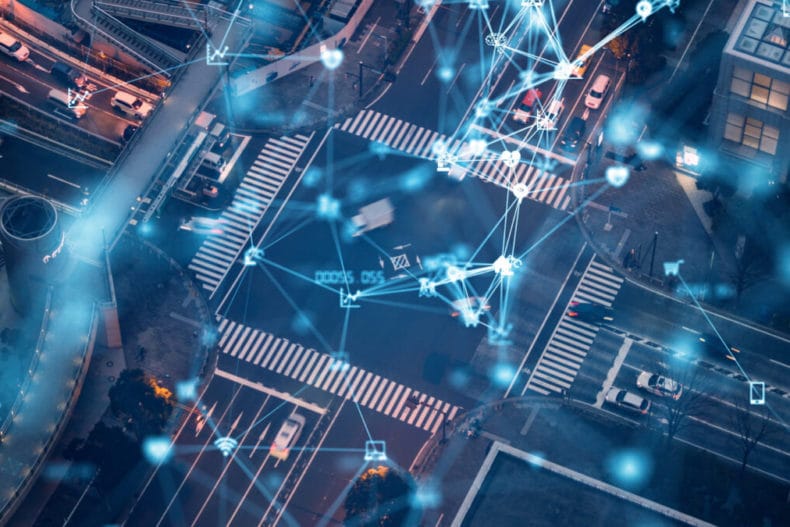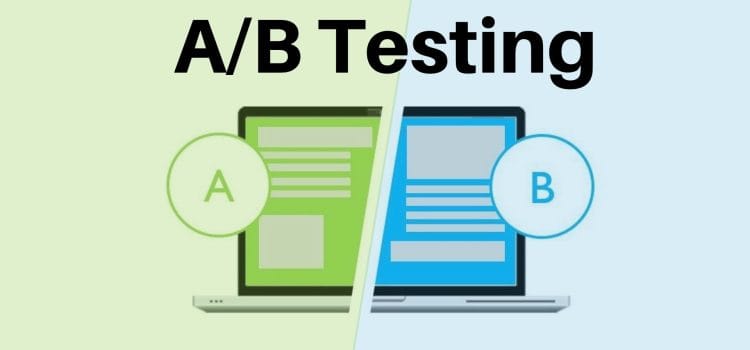Every second you spend online, you leave behind digital footprints—tiny pieces of information that reveal more about you than you might think. Your browsing history, social media interactions, online purchases, location data, search queries, and even the way you scroll through a page form a vast, invisible trail of personal data. Most of us are aware that the internet isn’t entirely private—but how many truly understand how much of their lives are exposed, sold, tracked, and stored indefinitely?
Welcome to the age of the data economy. Information about you is one of the most valuable commodities in the modern world. Corporations, advertisers, hackers, governments, and even artificial intelligence systems mine your data for profit, control, or insight. That personalized ad you saw this morning? It didn’t appear by accident. It was the result of countless background processes analyzing your behavior.
So, is your data safe? And if not, what can you do about it?
This article explores how data privacy works, how it’s often compromised, and most importantly—how you can reclaim control in an online world where privacy is not a given but a personal responsibility.
The Illusion of Privacy: Why the Internet Knows You Better Than You Think
Let’s start with a truth that many people ignore: the modern internet was not designed for privacy.
From the earliest days of the web, convenience and connectivity took precedence over security. As technology advanced, companies realized they could learn more about users by collecting their data—then use that data to sell products, influence decisions, or keep people engaged longer.
This surveillance-capitalism model exploded with the rise of social media, mobile apps, and e-commerce. Today, every click, swipe, and purchase feeds into vast algorithms designed to build a profile of who you are—what you like, dislike, fear, desire, support, and believe.
Even if you’re careful about what you post, you may still be revealing yourself through metadata—such as timestamps, geolocation, contact networks, and device usage. It’s not just what you share intentionally, but what your devices and apps are sharing on your behalf.
Think you’re off the grid because you don’t use Facebook? Think again. Facebook likely still has a shadow profile on you, built from your email in someone else’s contact list or your face in a tagged photo. Google’s services, likewise, track your location history, search behavior, YouTube views, and app usage.
Even your internet service provider (ISP) can see the sites you visit, the videos you stream, and the files you download. And unless you’re using proper protection, hackers, data brokers, and even governments can often access more of your online activity than you realize.
How Data Is Collected: The Invisible Web Around You
If you could see the full extent of data being gathered about you in real-time, it would likely be overwhelming. Let’s break down where and how data is being harvested in your everyday life:
1. Social Media
Every photo you post, every comment you leave, every like, share, or retweet—these are all signals. Social media companies track your engagement patterns to build detailed psychological profiles. They know your political views, your favorite brands, your hobbies, even your sleeping patterns.
Algorithms use this information not only to show you targeted ads but to determine what content you’re most likely to interact with, thus feeding you a tailored information bubble.
2. Search Engines
When you search something on Google, it doesn’t just give you an answer—it records your question. Over time, this builds a highly detailed map of your interests, health concerns, career ambitions, fears, goals, and preferences. Combined with location data, it’s easy to infer even intimate aspects of your life.
And it’s not just Google. Every search engine logs user queries, though some like DuckDuckGo and StartPage are designed to minimize tracking.
3. E-commerce Platforms
Online retailers such as Amazon not only track what you buy, but what you look at, how long you hesitate before buying, what you return, what you review, and when you shop. Combined with other behavioral data, this enables hyper-targeted marketing and price personalization.
Ever wonder why a product’s price seems to change after you look at it a few times? That’s dynamic pricing at work, often powered by your browsing behavior.
4. Mobile Devices and Apps
Smartphones are powerful surveillance devices. Your mobile apps collect massive amounts of data—contacts, location, microphone access, camera usage, motion, even battery status. Many apps request permissions far beyond what they truly need, and most people agree without reading the terms.
Some free apps make their money not by providing a service—but by harvesting and selling user data.
5. Smart Devices (IoT)
From smart TVs and voice assistants to fitness trackers and connected thermostats, the Internet of Things (IoT) has brought surveillance into our homes. These devices often transmit user data back to manufacturers or third-party services. Some even record conversations or collect biometric data like heart rate or sleep cycles.
6. Cookies and Trackers
Most websites use cookies to improve your browsing experience—but also to track your behavior. Third-party cookies, in particular, enable advertisers to follow you across multiple sites, building a cross-platform profile of your digital life.
Invisible tracking pixels (tiny embedded images) and browser fingerprinting (unique identifiers based on your browser configuration) are also common tools used for surveillance.
The Risks: Why You Should Care About Data Privacy
Too often, people think, “I have nothing to hide, so why should I care?” This mindset overlooks the fact that privacy is not about hiding wrongdoing—it’s about maintaining agency, security, and dignity in a connected world.
Here are just a few of the real-world dangers of poor data privacy:
Identity Theft
When your personal information is exposed—via data breaches, phishing attacks, or weak passwords—you become vulnerable to identity theft. Cybercriminals can open bank accounts, file tax returns, or commit fraud in your name.
Financial Loss
Stolen credit card details or hacked bank accounts can lead to immediate monetary loss. More subtle risks include predatory lending, personalized scams, or exploitative pricing.
Manipulation and Disinformation
Political campaigns and malicious actors use your data to target you with specific content, often designed to manipulate emotions or reinforce biases. The Cambridge Analytica scandal revealed how deeply such tactics can influence democratic processes.
Reputational Harm
Old tweets, search histories, or private messages can resurface and be taken out of context. Employers, universities, or even governments may use your online behavior to make decisions about you without your knowledge.
Loss of Freedom
In some countries, online activity is monitored and used to punish dissent. But even in democratic societies, mass surveillance can have a chilling effect on free expression.
Future Risk
Even if your data seems harmless today, its long-term use is unpredictable. Data never truly dies, and future AI systems or legal changes could make today’s innocent data tomorrow’s liability.
How to Protect Your Privacy Online: Real, Practical Steps
Now that you know the dangers, let’s talk solutions. While perfect privacy is nearly impossible, you can drastically improve your digital safety with mindful habits and the right tools.
Use Strong, Unique Passwords
Every online account should have a different password. Use a password manager like Bitwarden, 1Password, or KeePass to generate and store complex passwords securely.
Avoid using names, birthdays, or common phrases. Enable two-factor authentication (2FA) wherever possible, preferably using an authentication app instead of SMS.
Lock Down Your Devices
Keep your operating system and software updated. Use antivirus software. Set up strong PINs or biometrics for device access. Encrypt your phone and computer if possible.
Turn off Bluetooth and location services when not needed. On Android, check app permissions regularly and restrict background data usage.
Choose Private Browsers and Search Engines
Ditch Chrome for privacy-focused browsers like Firefox, Brave, or Tor. Use search engines like DuckDuckGo, StartPage, or Mojeek that don’t track your queries.
Install browser extensions like uBlock Origin, Privacy Badger, HTTPS Everywhere, and Decentraleyes to block trackers, ads, and insecure connections.
Be Careful What You Share
Think before posting personal details online. Avoid disclosing your full birthdate, phone number, or home address on social media or public forums.
On platforms like Facebook, review your privacy settings. Limit visibility of your posts and use pseudonyms or aliases where appropriate.
Use Encrypted Messaging
Switch from SMS or Facebook Messenger to end-to-end encrypted services like Signal or Telegram. WhatsApp offers encryption too but is owned by Meta, which raises additional concerns.
For email, consider ProtonMail or Tutanota. Use encryption tools like PGP for sensitive communications.
Avoid Public Wi-Fi for Sensitive Tasks
Public Wi-Fi networks are a playground for hackers. If you must use them, avoid accessing banking or personal data. Use a Virtual Private Network (VPN) to encrypt your connection.
Consider a VPN and Antivirus
A VPN masks your IP address and encrypts your internet traffic. While it won’t make you completely anonymous, it’s a solid first step. Choose a reputable provider that doesn’t log your activity.
Pair this with reliable antivirus software and regular security audits.
Reduce Your Digital Footprint
Delete unused accounts. Use services like JustDelete.me to find instructions for account deletion. Unsubscribe from newsletters and remove yourself from data broker lists using services like Abine or DeleteMe.
Regularly audit your online presence and clean up old content you no longer want online.
Limit App Permissions
Apps often request access to more data than they need. On both iOS and Android, go to Settings and manually restrict access to your camera, contacts, microphone, and location.
Only install apps from trusted sources. Read privacy policies before agreeing to terms—and if that sounds like a lot of work, consider that your life may depend on it.
Children and Privacy: A Vulnerable Generation
Children are especially vulnerable to online surveillance. From educational platforms to social media, their data is often collected before they understand what privacy even means.
Teach kids about online safety early. Monitor app usage, use parental controls, and explain the importance of not oversharing. Avoid posting photos or information about your child online without considering their future right to privacy.
Remember: the internet never forgets, and what seems cute today could haunt them tomorrow.
Corporate Responsibility vs. Personal Vigilance
You might wonder: why is the burden on me? Shouldn’t companies and governments do more to protect privacy?
The answer is yes—but until robust privacy laws and ethical tech design become standard, your best defense is personal vigilance.
Some countries have strong privacy laws—like the GDPR in the EU or CCPA in California—but enforcement remains inconsistent. Meanwhile, Big Tech continues to profit from surveillance, often pushing back against reforms.
You can advocate for better laws, support privacy-friendly companies, and demand transparency. But until the system changes, you are your own last line of defense.
The Future of Privacy: What’s Next?
The future will bring even more data, faster networks, smarter algorithms, and new threats.
Facial recognition, biometric surveillance, predictive policing, and AI-powered profiling are already in use. The rise of brain-computer interfaces, wearable tech, and virtual reality will blur the line between digital and physical selves.
At the same time, decentralized technologies like blockchain, zero-knowledge proofs, and federated networks offer hope for privacy-first innovation.
Ultimately, the question is not just how to protect your data—but what kind of world we want to build. A world of digital freedom and human dignity—or one of control, surveillance, and inequality.
Final Thoughts: Privacy Is Power
Your data is your story. It’s your identity, your history, your relationships, your dreams. When others control that data, they control you.
Privacy is not about hiding something wrong—it’s about protecting your right to exist without constant surveillance. It’s about choice, autonomy, and freedom.
You don’t have to be a cybersecurity expert to take back control. Start with small steps. Learn, adapt, and be mindful. Share your knowledge with friends and family. Demand better from the services you use.
Because in a world where data is currency, privacy is power—and the time to protect it is now.






